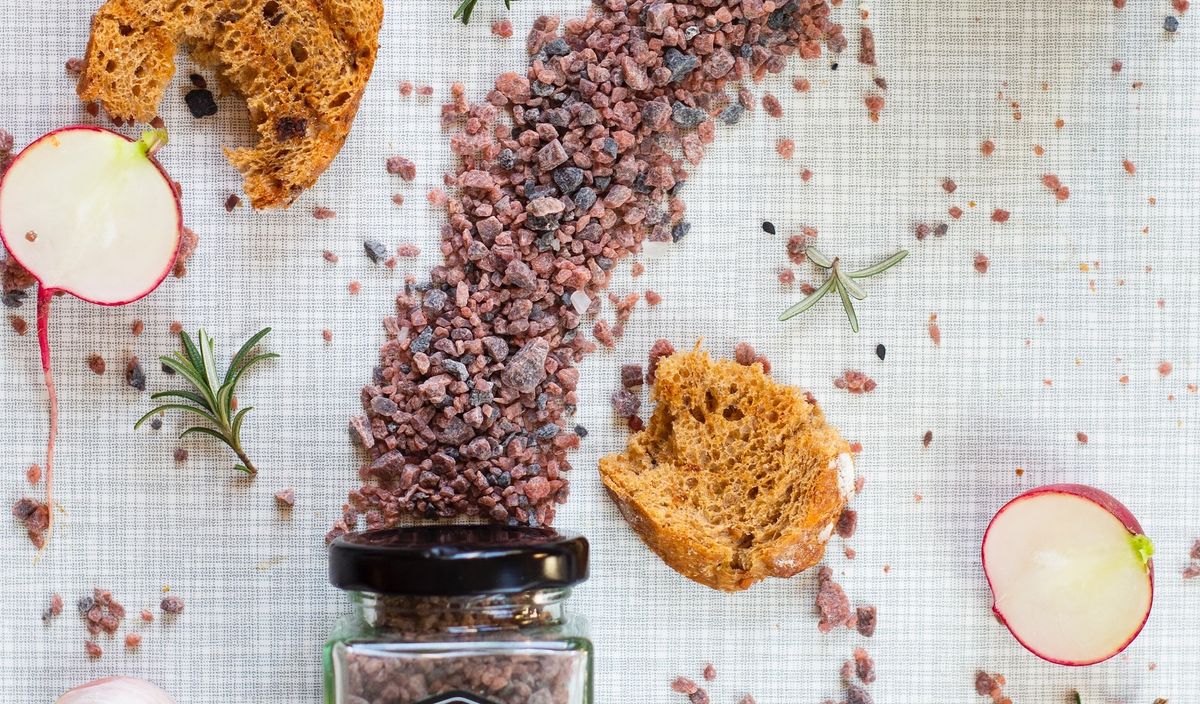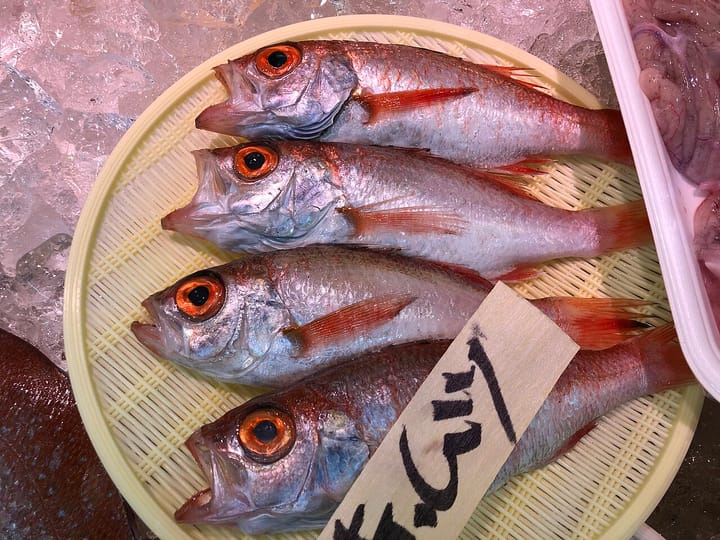Korean Purple Bamboo Salt: World's Most Expensive
Korean bamboo salt, is the world's most expensive salt. Its high cost stems from the labor-intensive and time-consuming traditional preparation methods. Why such a hefty price? It's all in the detailed craftsmanship.

Korean bamboo salt holds the distinction of being the world's priciest salt, with a staggering price tag of $450 per kilogram. Its premium cost reflects the extensive time and meticulous effort invested in its preparation.
What is Korean Purple Bamboo Sea Salt?
Jugyeom (죽염), or Korean Purple Bamboo Salt, is crafted from sea salt packed in bamboo and roasted nine times over over a blazing pine firewood flame.
This rigorous procedure ensures the elimination of impurities from the original salt. Simultaneously, it boosts the concentration of essential minerals like calcium, potassium, iron, copper, and zinc.
Achieving temperatures surpassing 1,500°C, the salt takes on a distinctive purple hue, symbolizing its premier quality and earning it the names "amethyst bamboo salt" or "purple bamboo salt".
History
Korean bamboo salt is deeply intertwined with Korea's cultural and medicinal heritage. Originating from ancient practices, this salt symbolizes the harmony of earth, wood, and fire.
Infused with minerals from ocher and bamboo, Jugyeom has long been cherished for its diverse health benefits, from aiding digestion to its use as a disinfectant and dental aid.
Notably, scholar Insan Kim Il-hoon (1909-1992) championed the idea of Jugyeom's potential in treating ailments like cancer, intestinal inflammation, and stomach ulcers, marking its significance in both historical and contemporary contexts.
Price Point
Korean bamboo salt roasted nine times typically ranges from $450 per kilogram.
Why is Jugyeom Bamboo Salt So Expensive?
Labor-Intensive Process and Baking Procedure
Jugyeom, a distinguished Korean bamboo salt, undergoes a precise 30 to 50-day crafting process. It all begins with 3-year-old bamboo stalks, tailored to hold bay salt from Korea's untouched west coast.
Once filled, these trunks are sealed with yellow clay and set in a kiln, roasted over pine logs at temperatures surpassing 800°C for 12 to 14 hours.
With each roasting, the bamboo disintegrates, leaving a salt column behind. This salt, once ground, is repacked into new bamboo and the roasting is repeated, the bamboo releases beneficial oils that get absorbed by the salt, enriching its flavor with each cycle.
A unique facet is the "Gamrojung" sweetness the bamboo imparts to the salt. The culmination of these cycles births Jugyeom, a salt praised for its taste and the artisanal commitment behind its making.
Final and Critical Roast
The ninth baking of Jugyeom reaches soaring temperatures of over 1,000°C. This results in bamboo salt showcasing a spectrum of colors, from blue and yellow to red, white, and black crystals.
When the baking surpasses 1,500°C, the salt takes on a distinctive purple hue, earning it the moniker "purple bamboo salt." This shade is often associated with top-tier quality.
However, while color provides a hint, the salt's true quality is gauged by its crystal structure and durability. Crafting such salt requires advanced kilns and adept artisans.
A single misstep here can jeopardize an entire month's efforts.
After roasting, the blend of bamboo and salt crystallizes into a rocklike form, which is then meticulously shattered.
Cultural and Health Significance
Bamboo salt, traditionally baking two to three times, is grounded in Korean medicine.
The contemporary nine-roast method highlights reduced toxicity and increased minerals.
Used in cooking, toothpaste, soaps, and remedies, it's believed to support digestion, oral health, skin care, inflammation, and may possess anticancer traits.
Flavor Profile
Korean Purple Bamboo Sea Salt presents a layered palette of tastes. The bamboo roasting bestows a smoky touch, while the yellow clay adds a grounded, earthy nuance.
Alongside its primary salty essence, there's a unique flavor reminiscent of egg yolk, intensified through successive roasting.
With its sharp briny taste and mineral-rich aftertaste, this salt is cherished for enhancing culinary creations.
The Importance of Nine-Times Roasting
The practice of roasting the Jugyeom salt nine times is not just a tradition but a meticulous process to enhance the salt's quality. With each roasting:
- Purity: Impurities are progressively eliminated, resulting in a purer product with every cycle.
- Mineral Enrichment: The repeated interaction with bamboo and yellow clay augments the salt's mineral content, enriching its nutritional value.
- Flavor Intensification: The flavor profile deepens and becomes more nuanced with each roasting, lending the salt its signature taste.
Culinary Creations Where it's Often Utilized
- Kimchi Jjigae (Kimchi Stew): Bamboo salt can be added to this spicy and tangy stew to enhance its depth of flavor.
- Grilled Fish: Lightly season grilled mackerel or other fish with bamboo salt to accentuate its natural flavors.
- Tofu Dishes: Whether it's pan-fried or served cold, a sprinkle of bamboo salt can enliven the subtle taste of tofu.
- Pasta Dishes: Sprinkle bamboo salt over Italian pasta dishes like Aglio e Olio or Carbonara to enhance the savory flavors with its unique mineral notes.
- Avocado Toast: A dash of bamboo salt on this popular breakfast item can elevate the creamy flavors of the avocado.
- French Ratatouille: Its mineral-rich taste can enhance the medley of vegetables in this classic French dish.
- Steaks and Grilled Meats: Whether it's an Argentinian Asado or a classic American steak, bamboo salt can be used as a finishing touch to enhance the meat's flavors.
- Soups and Stews: In dishes like Spanish Gazpacho or Moroccan Tagine, bamboo salt can be used to season and elevate the broth's flavors.
- Salads: From Greek Salad to Caesar Salad, a touch of bamboo salt can add a unique depth of flavor.
- Baked Goods: For a savory twist, bamboo salt can be sprinkled over baked items like focaccia, pretzels, or even some cookie varieties.
In Conclusion
Korean bamboo salt isn't just a seasoning; it's a testament to centuries-old craftsmanship and dedication. The staggering price is a reflection of the intricate process and time invested in its creation.
Beyond its rich heritage, its unique flavor profile can transform and elevate any dish. So, if you're looking for an experience that extends beyond the palate and into the realm of culinary history and luxury, give Korean bamboo salt a try.
It's not just about tasting salt; it's about savoring a piece of tradition.


